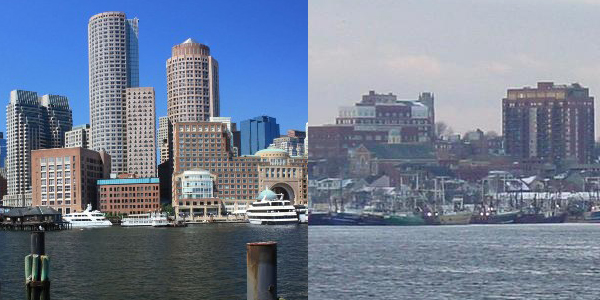A Tale of Two Economies: Job Creation in Massachusetts
In the State of the Union Address last night, President Obama spoke at length about how the country can kick-start the great American job engine. Here in Massachusetts, we hear that we are doing well compared to the rest of the country. And in part it is true that Greater Boston (though not the rest of the state) is faring better than many older industrialized states. But overall we have a stagnant job base and we face huge challenges.
In the video presentation below, Pioneer Executive Director Jim Stergios provides a comprehensive overview of findings from our seven-report series on job creation and economic development in the Commonwealth, entitled, “Massachusetts’ New Economy.”
[youtube height=”HEIGHT” width=”WIDTH”]http://www.youtube.com/watch?v=jaePzajNdpc[/youtube]
The “Massachusetts’ New Economy” series elucidates important changes in our economy over the past two decades. We are not dealing with old economic realities and that means we need a new way of thinking about job and business creation. Massachusetts circa 2013 has a new economy – one that is structurally different from and much more difficult than the economy of the mid-1980s or even the late 1990s. Here are some takeaways:
- The Bay State has not seen any net job growth in two decades, even as the rest of the US grew jobs by over 20 percent. In many ways we do not want to emulate Texas, but the fact is that since 2001, Massachusetts has lost hundreds of thousands of jobs, while Texas has added 732,000 jobs.
- While the state has spent a lot of money and manpower on getting companies to relocate in Massachusetts, that only accounts for less than 2 percent of job growth or loss in any one year. The firms that tend to relocate here are more often than not from high-cost states (NY, NJ, RI, etc.); and they are again more often than not retail jobs. The firms that tend to leave Massachusetts most often relocate to low-cost states (NH, FL, ME, NC, AZ); and they are often high-tech. That’s a bad trade.
- Almost 80 percent of high-tech firm CEOs we surveyed said that the tax climate is what impacts their decisions around growth the most. Included in the survey was anxiety about the “volatility” of the tax/business cost regime in Massachusetts, and the frequency of one-time fees to close state budget gaps by both parties.
- Since 1990 the number of Massachusetts headquarters has collapsed by a third, going from 16,000 to 11,000. That accounts for about 250,000 jobs lost. The loss of headquarters has affected virtually all industries.
- The average size firm in Massachusetts has shrunk by almost 40 percent, going from 16 to 9.7 employees on average. Even excluding headquartered firms and branch affiliated firms, the size of standalone firms has shrunk (from 8.7 to 6 employees on average). The shrinkage has affected all industries.
Our aim? A fact-based conversation that gets us to refocus our own state and local policymakers on kick-starting the great Massachusetts job engine.
Access the PowerPoint presentation here: [wpdm_package id=338]


